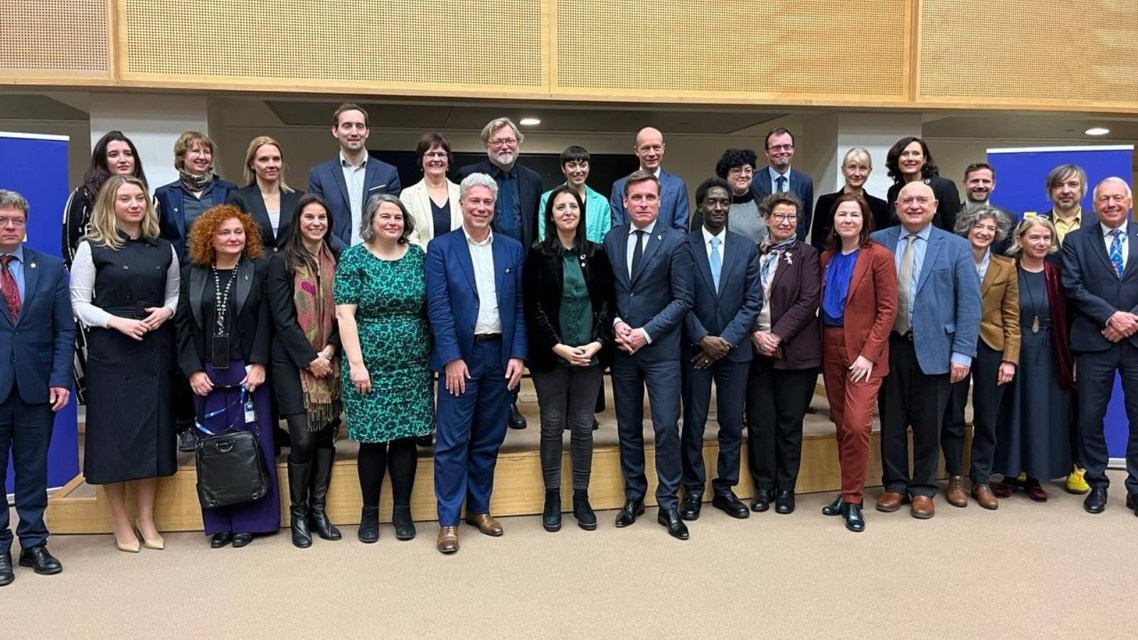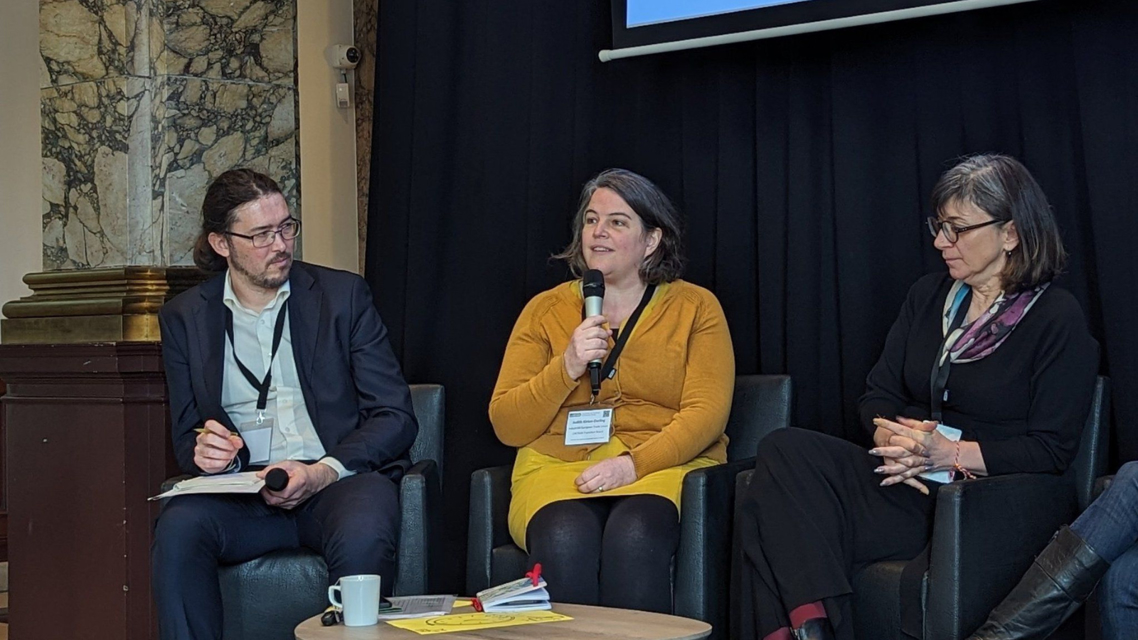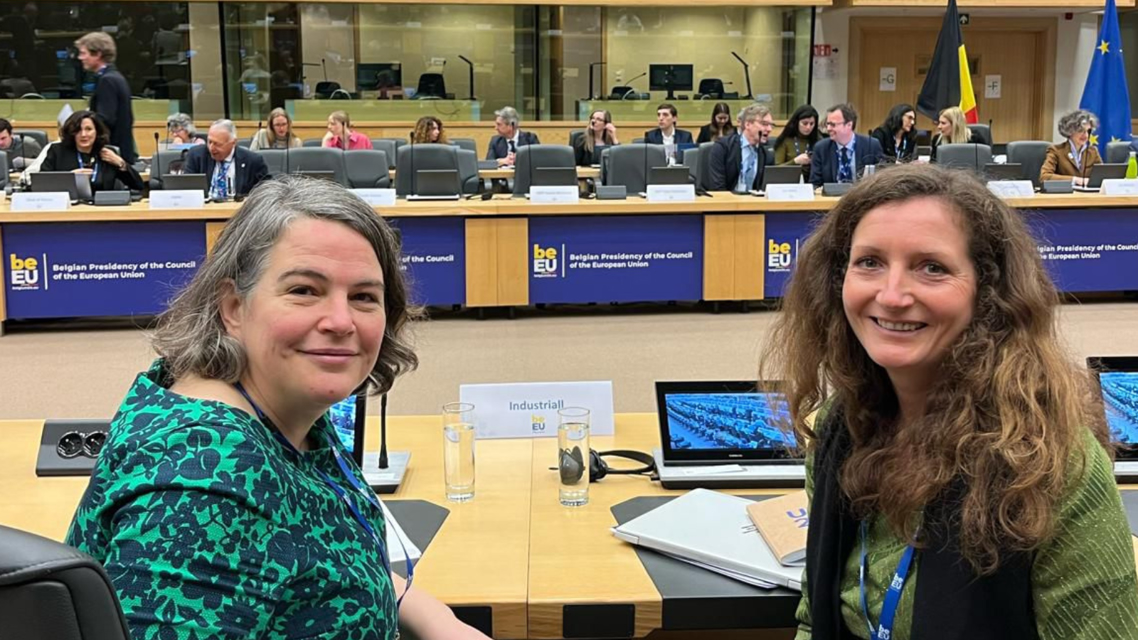Proactive industrial policy plans combined with Just Transition planning will be the only way to manage the transition.
On 4 and 5 March, industriAll Europe took part in the European Conference for a Just Transition organised by the Belgian Presidency of the EU. Chaired by the Belgian Minister for Environment, Climate and Sustainable Development, Zakia Khattabi, the conference aimed to inform and consult different stakeholders on the EU's Just Transition policy. The EESC opinion 'Advancing the EU's Just Transition Policy Framework' served as a key reference for the event. The conference provided important input to the next Environment Council on 25 March, with a view to the adoption of Council conclusions on 17 June, which will serve as policy recommendations to the next Commission and EU Presidency.
The event was attended by around 300 participants, including the European Commissioner for the Green Deal, Maroš Šefčovič, representatives from a number of EU Member States, the International Labour Organisation, the EESC, social partners and other stakeholders.
IndustriAll Europe General Secretary Judith Kirton-Darling spoke at the opening of the conference. Echoing the principles of industriAll Europe's Just Transition Manifesto, she stressed the need for a comprehensive framework for Just Transition at EU level. This framework should provide the necessary rights and structures to anticipate and manage change proactively, rather than merely reacting to adverse impacts. She highlighted the need for a Just Transition Directive to ensure that workers are not left behind. This directive would facilitate seamless job transitions for workers in existing sectors, while ensuring the creation of quality jobs in emerging sectors such as renewable energy and electric vehicles. Trade union involvement and worker participation must be core principles of a Just Transition Directive.
Senior Policy Advisor Corinna Zierold made the case for publicly funded investment with social conditionality during the conference panel on industrial policy. Social conditionalities should be at the heart of any EU investment plan. This could take the form of mandatory up-skilling and reskilling programmes for companies receiving subsidies to ensure that workers can move to jobs in other sustainable sectors. IndustriAll Europe also advocates a stronger European industrial policy rather than a return to austerity plans. Certain regions, in particular the countries of Central and Eastern Europe, which have a high share of employment in energy-intensive industries, while huge investments are needed to transform their industries, are facing serious difficulties. Proactive industrial policy plans combined with Just Transition planning will be the only way to manage the transition.
Judith Kirton-Darling was also a speaker at the closing event on 6 March of CINTRAN, a European-funded project aimed at developing feasible pathways and policy guidelines for deep transitions in coal regions. IndustriAll Europe has been an active member of the project's advisory board, providing insights from the situations on the ground as reported by our member organisations. Many jobs in emerging sectors in these regions are characterised by lower quality, lack of unionisation and lack of collective bargaining coverage. This is therefore an important time to underline the need to defend collective bargaining frameworks and ensure the availability of good, sustainable and well-paid jobs.
These two events follow a period in which the Just Transition debate has gained prominence in policy making, as evidenced by the European Parliament's resolution in November and the 2022 Council's recommendation on ensuring a Just Transition to climate neutrality. IndustriAll Europe will continue to work with its members on this issue as part of our Good Industrial Jobs campaign ahead of the 2024 EU elections.


